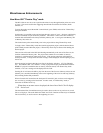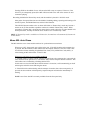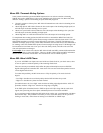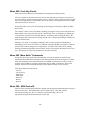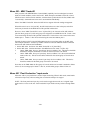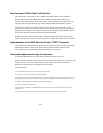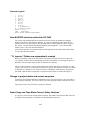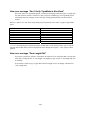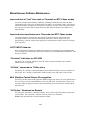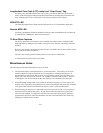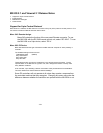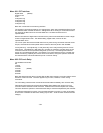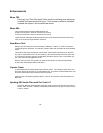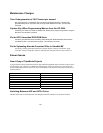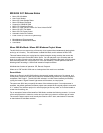- 26 -
Miscellaneous Software Maintenance
Improved lock to "bad" time code in Timecode or MTC Chase modes
Previously, the MX-2424 could have difficulty sustaining a satisfactory lock when the input
Longitudinal Time Code (LTC) or Midi Time Code (MTC) was of inferior quality. The allowed
time code "dropout" period has been increased to 10 frames. In other words, the input timecode
has to drop out for more than 10 frames before the MX-2424 will interpret the condition as a
stopped master.
Improved record performance in Timecode and MTC Chase modes
The allowed amount of source time code playspeed variation has been relaxed, and once
recording is underway the MX-2424 will tolerate variations in master playspeed of up to
approximately 5 percent. Stable master playspeed is still required in order to enter record mode
in the first place.
AUTO INPUT behavior
With AUTO INPUT enabled, the switch from playback to input mode on record enabled tracks
was not taking place on transitions from PLAY directly to FAST FORWARD or REWIND. This
has been corrected.
“Overload” indicators on RC-2424
Previously, the “overload” indicators on the RC-2424 would not illuminate. The overload
indicators now work properly.
“All Safe” command on TL-Bus slave
Previously, the “All Safe” command would not latch on MX-2424s that were slave machines on
the TL-Bus. The “All Safe” command now latches locally on any MX-2424, on the TL-Bus.
Midi Machine Control Device ID recognition
Previously, the MX-2424 would respond to MIDI messages from devices set to any MIDI Device
ID, even if it was not the same MIDI Device ID as the MX-2424. The MX-2424 will now only
respond to MMC messages sent from a device transmitting on the device ID set in Menu 300 of
the MX-2424.
”All Online” Command on Remote
Previously the “All Online” command on the RC-2424 would not put all machines connected to
is now functional.
remote online. The “All Online” function of the RC-2424
NOTE: This command will not take all machines offline.



